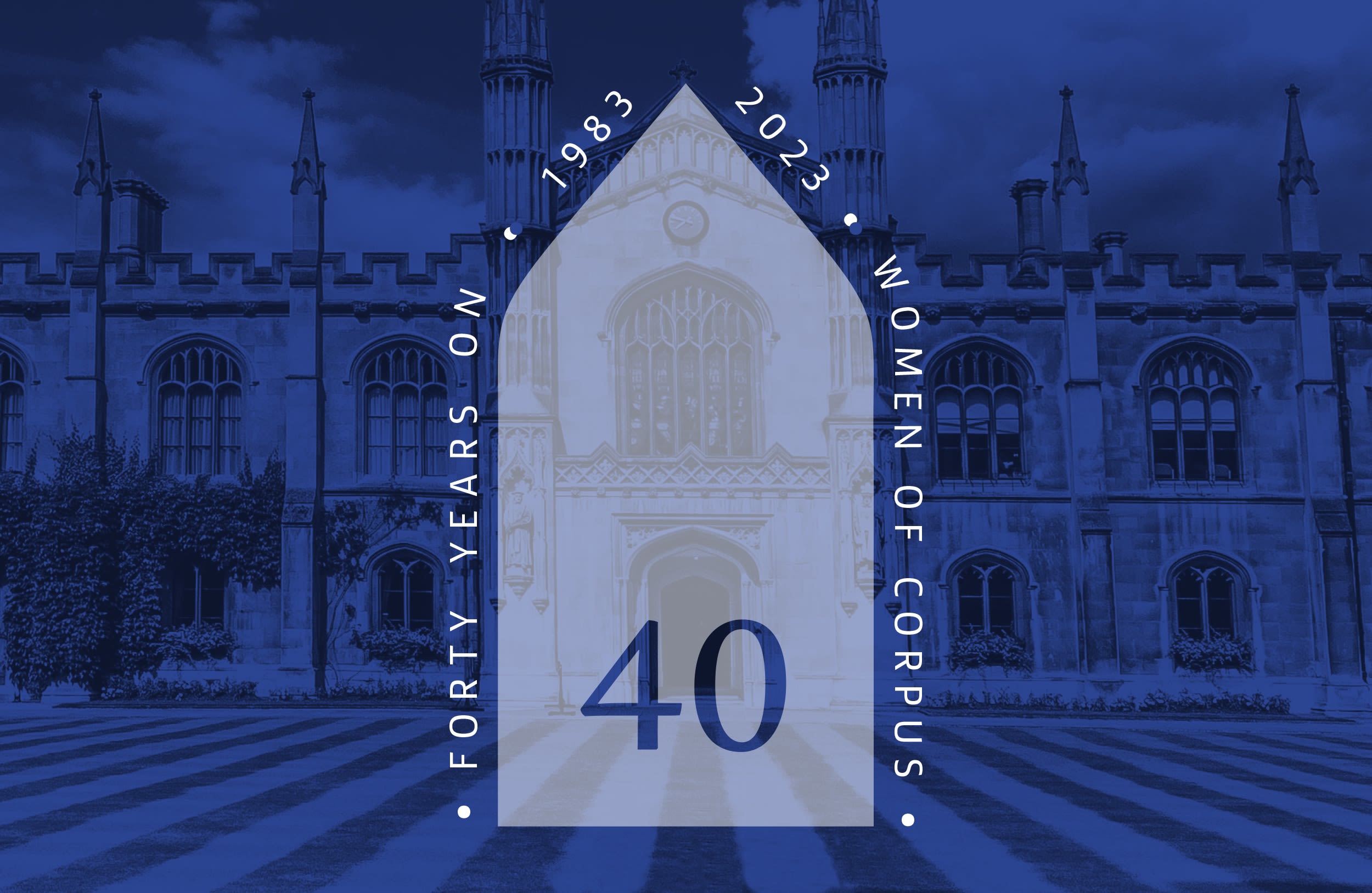CHARLOTTE ERICKSON
(m.1982)
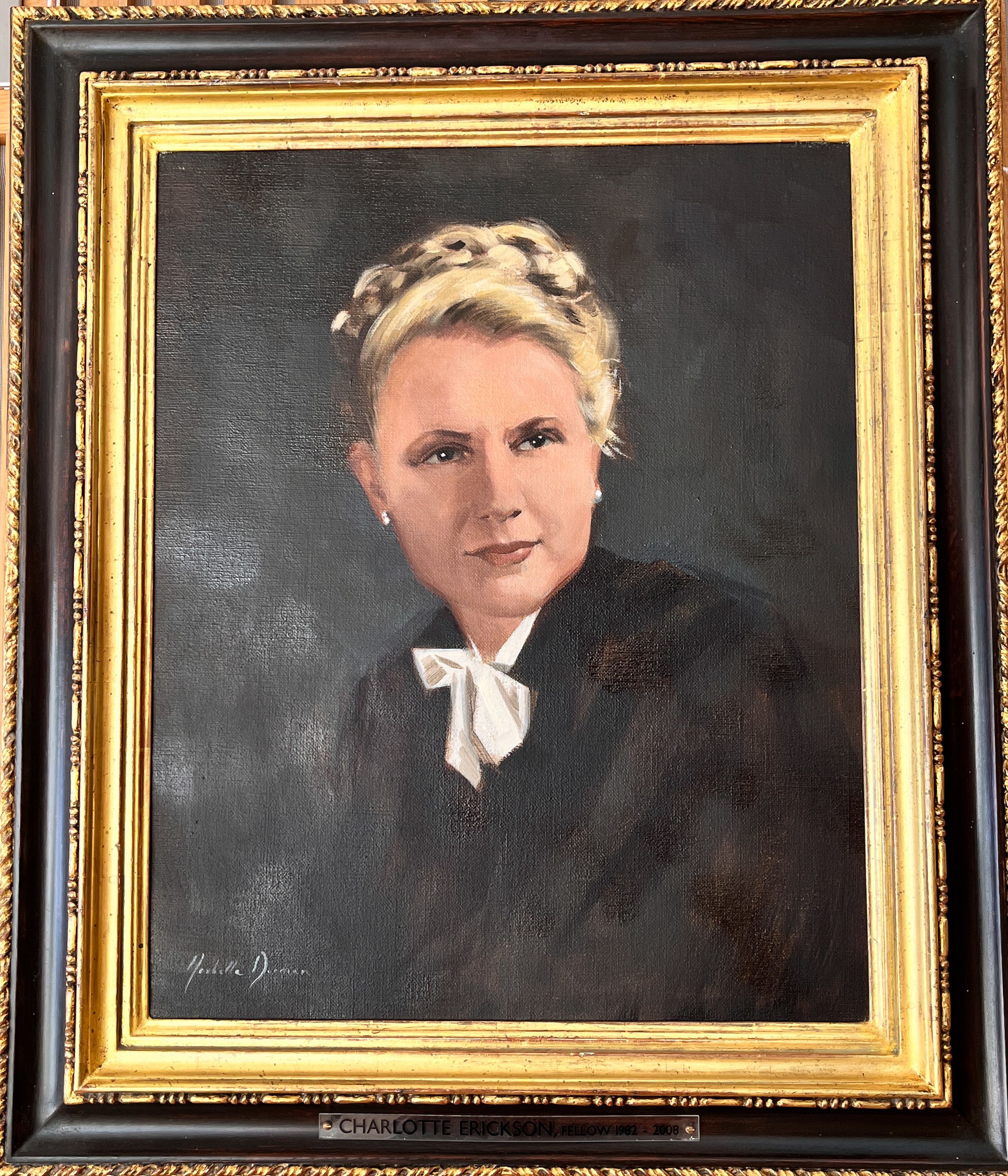
As soon as the Michaelmas Term of 1982-83 began...two Fellows were elected in July 1982, of whom the senior in precedence had recently been elected Paul Mellon Professor of American History in the University.
Born on 22 October 1923 at Oak Park, Illinois, Charlotte Erickson was the daughter of Dr Knut Eric Erickson and his wife Lael (née Johnson). Dr Erickson was Comptroller and Vice-President of Augusta College, Rock Island, Illinois, which, after her early schooling, Miss Erickson later attended, taking her first degree there in 1945, primarily studying music and history. Thirty-two years later the College bestowed on her an honorary Doctorate of Letters. She studied at Cornell University, Ithaca, New York, first for her Master's degree (1947) and then for the PhD degree which she obtained in 1951. She was awarded Fellowships by the American Association of University Women and the (American) Social Science Research Council (1948-49) and became one of the first Fulbright Scholars (1949-50). With this support she came to England and stayed for two years as a student at the London School of Economics studying economic history. In 1952 she returned to Cornell to complete her dissertation, and was at the same time appointed to an Instructorship in History at Vassar College, Poughkeepsie, New York, which she held for two years.
1952, in the course of which she resigned her Vassar appointment, was a year of particular significance for Dr Erickson's future, for in it she returned to England, which has been the centre of her career ever since: and in July of it she married Mr Glen Louise Watt, with whom she has two sons.
Shortly after her taking up residence in England she was appointed a Fellow of the National Institute of Economic and Social Research, a Fellowship which she held for the next three years, interrupted only by a return to Cornell University for six months in 1954 as Lilian Gilmour Fellow. In 1955 she resumed her long association with the Department of Economic History in the London School of Economics, which lasted in total for thirty years.
During this period Charlotte spent a year (1966-67) in Washington DC as a Guggenheim Fellow, and precisely ten years later went to the California Institute of Technology. Apart from articles in the relevant professional journals, she published in 1957 American Industry and the European Immigrant, which was in essence a revision of her doctoral dissertation. This was followed two years later by British Industrialists: Steel and Hosiery 1850-1950. Research on immigration to the United States regulated in two further studies in the 1970s, Invisible Immigrants: the Adaptation of English and Scottish Immigrants in Nineteenth-Century America (1972), and Emigration from Europe (1976).
Historian Peter Martland wrote in the 2008 The Letter, in his obituary of Charlotte Erickson, "Dr Erickson left the LSE in 1982 and came up to Cambridge as the first holder of the Paul Mellon chair of American History. Although she was approaching her sixtieth birthday this move was not a pre-retirement sinecure: by the time she did retire American history was, thanks to her persistence and work, firmly entrenched in Cambridge. There was another side to her work in the History Faculty. When she took up her chair there were few women lecturers and even fewer women holding chairs. Charlotte broke the mould, and women colleagues from this period testify she led from the front, not as a feminist but as an outstanding scholar and administrator; the numerous women members of the Faculty today have in her a role model that would be hard to beat.
"She became the first female Fellow at Corpus. Although her obituary in the Independent suggests the move 'plunged her into culture shock' and asserted Charlotte did not take to the College's 'masculine clubbiness', she chose Corpus because of the welcome she received and kindness and understanding of the then-Master and his wife, Michael and Christine McCrum. At the time of her appointment the College had already made the decision to admit women members, and she and Diane Dawson became key figures ensuring the success of this important transition. Throughout her time as an active Fellow, Charlotte played an important role in the life of the College, which was - like the rest of the University - going through a period of great change.
"In line with her previous life, Charlotte threw herself into the teaching of her subject. I was the first of her Corpus students, and attended her lecture course at the Faculty. Her time at the LSE had given her a great deal of experience in teaching older students, and she used this to great effect teaching me American history. She was an outstanding and enthusiastic teacher, sympathetic and understanding of the problems encountered by non-standard undergraduates. She encouraged, cajoled and inspired with an extraordinary wisdom, able to pull out fascinating ideas and interesting interpretations of issues and problems. I learned so much from her, and following the old precept that teachers should draw on their own best experiences as students, I try in my own teaching to use some of her methods. Later, when I was a graduate student, I became a member of Charlotte's graduate seminar. It was a disparate group of of students, but she welded us all together and I learned a lot about learning and about aspects of American history that surprised and amazed me, awakening in me a love for American history that has stayed with me to the present."
During 1988-89 she worked at the Huntington Library in California on the material for her Leaving England: Essays on British Emigration in the Nineteenth Century (1994) Among a variety of commitment on trust, councils and committees, she served as a Member of the Fulbright Commission from 1985 to 1989, and from 1986-89 was Chair of the British Association for American Studies.
Charlotte became a Life Fellow in 1990 when she retired from the Mellon Professorship. She was awarded a prestigious MacArthur Fellowship by the McArthur Foundation of Chicago which she used for research, and to encourage and support research students.
Peter Martland describes how "In the late 1990s Charlotte's declining health severely curtailed her appearances in College, but did not diminish her zest for research and writing. As her eyesight got worse, she used ever more ingenious methods to enable her to continue using her computer. Her carers were put to unusual occupations, such as obtaining books for her from the University Library. Her last appearance in College was at an Old Court party to mark the retirement in 2006 of Haroon Ahmed as Master. By this time she was very frail and wheelchair-bound, but she was still bright, and many friends and colleagues from both the Fellowship and staff saw and spoke to her and expressed delight at her being there."
In her obituary written for The Independent, the economic historian Negley Harte wrote, "As a teacher, she inspired her students with motherly, down-to-earth encouragement combined with fizzing ideas, constant practical support with continual intellectual questioning, and a contagious enthusiasm which never flagged."
On Friday 18 July 2008, this letter appeared in The Independent. Arriving at the LSE in the autumn of 1956, I was allocated Charlotte Erickson as my tutor, writes Roy Sturgess [further to the obituary by Negley Harte, 16 July]. At my first meeting I found her newly installed in a shared, small room high up in the New Building. It was a cosy, crowded room, cluttered with books and part-opened boxes, and filled with an atmosphere of what I could only later recognise as female homeliness.
Being very conscious that she was an American and wanting to be provocative, and realising somehow that it was safe to be so, I offered her the fruits of my working-class, provincial experience and said that all Americans were conformists. She immediately replied in kind, and with a smile, that the British were also conformists, because they all thought they were nonconformists. She was extremely accommodating of my personal uncertainties and showed me such an unvarnished respect that I had to begin seeing myself through her eyes. Meeting her was like being with a supportive parent, a challenging friend and a deep source of wisdom all at the same time.
Parts of this biographical sketch are adapted from A History of Corpus Christi College 1952-1994 by A. Geoffrey Woodhead
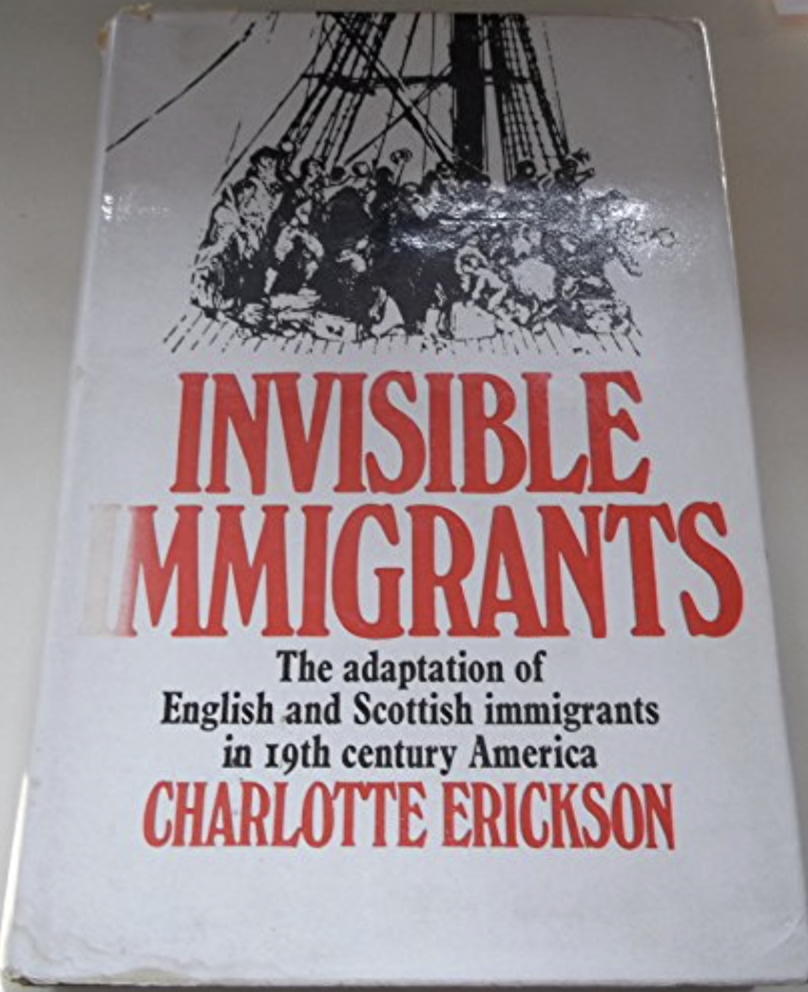
Invisible Immigrants: Adaptation of English and Scottish Immigrants in Nineteenth-century America
Invisible Immigrants: Adaptation of English and Scottish Immigrants in Nineteenth-century America
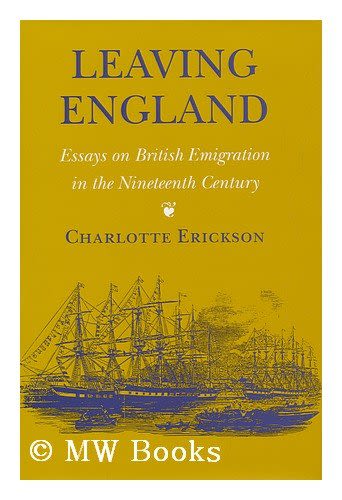
Leaving England: Essays on British Emigration in the Nineteenth Century
Leaving England: Essays on British Emigration in the Nineteenth Century
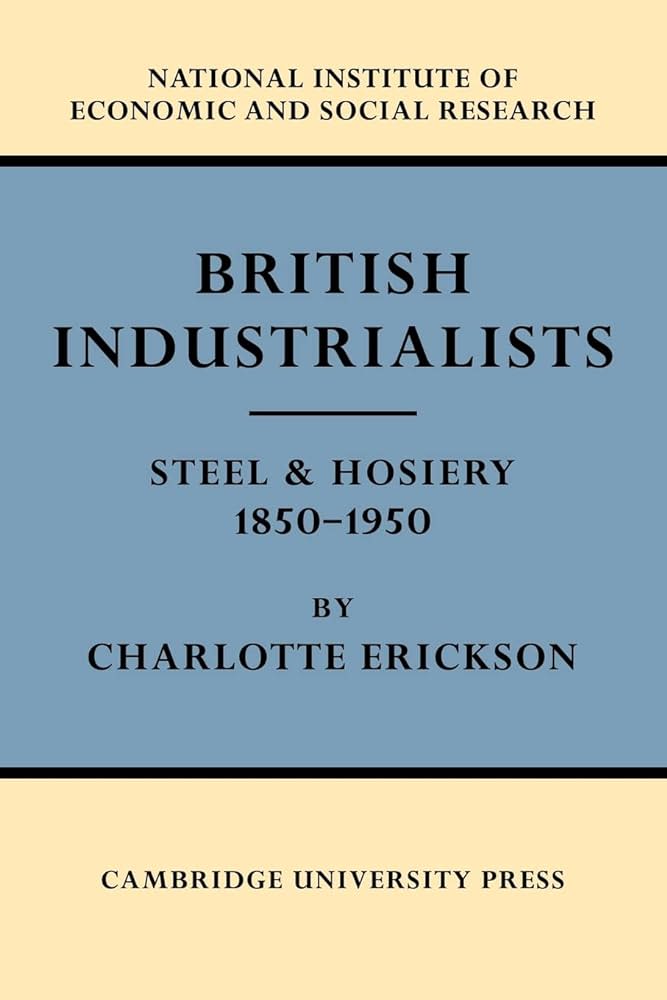
British Industrialists: Steel & Hosiery 1850-1950
British Industrialists: Steel & Hosiery 1850-1950
